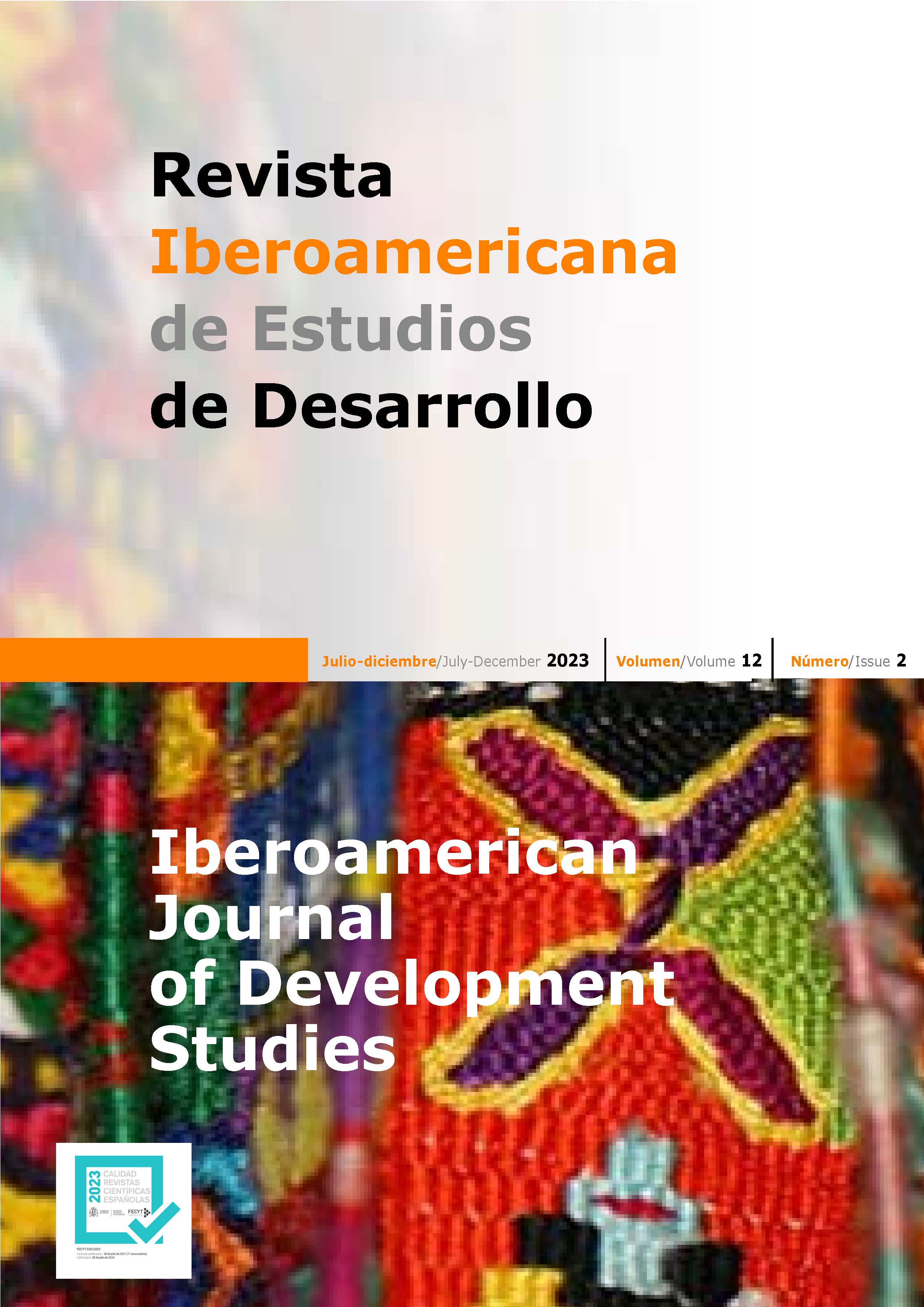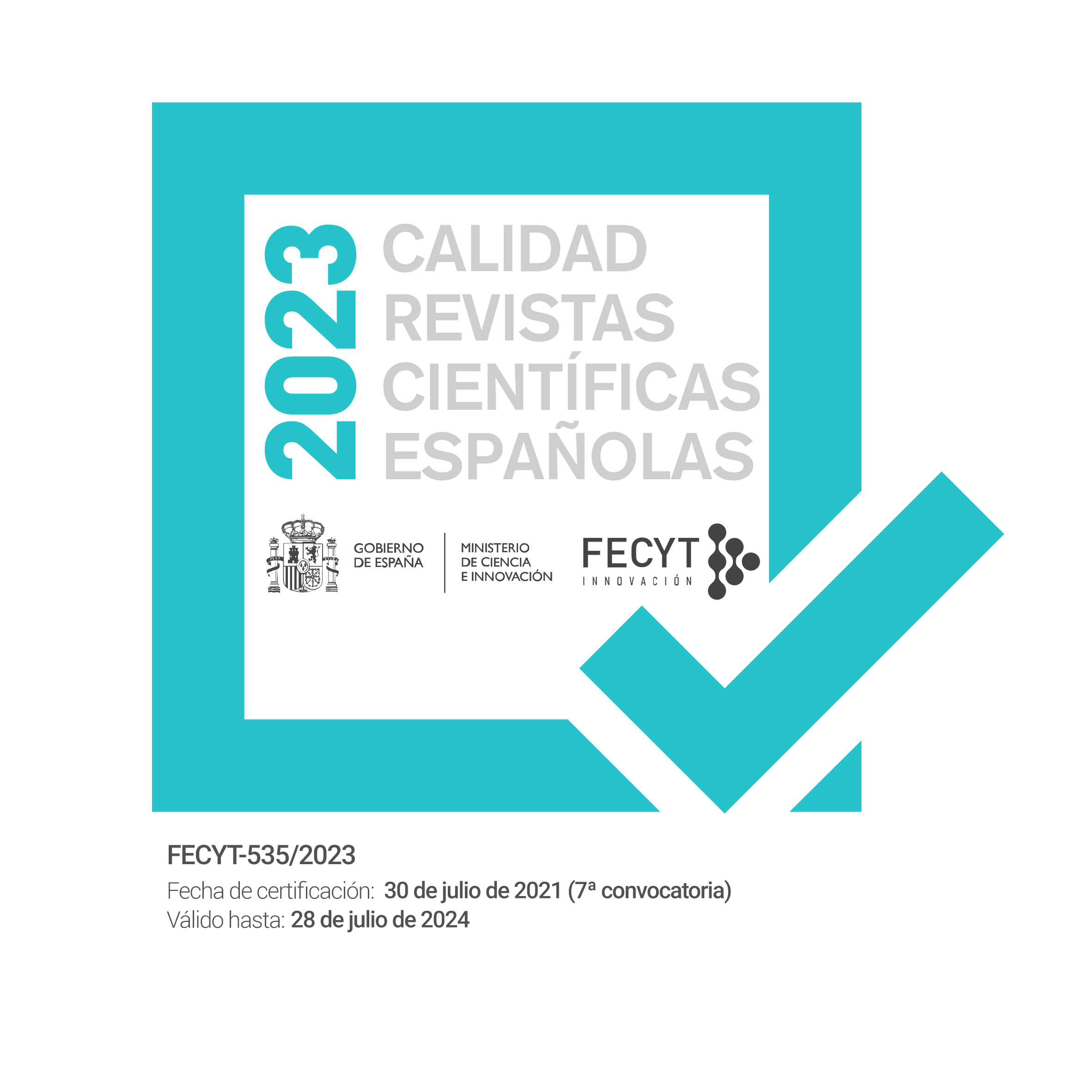Agricultural support policies and GHG emissions from agriculture in Latin America: relationships and policy implications for climate change
DOI:
https://doi.org/10.26754/ojs_ried/ijds.783Keywords:
agricultural greenhouse gas emissions, total support estimate, general service support estimate, producer single commodity transfers, Latin American countriesAbstract
Domestic support policies for farmers and agriculture, through their price effect, have been deemed potentially environmentally harmful; for example, in developing countries, agricultural prices have been set- below the world market prices, aiming to secure low retail prices for urban consumers. This practice has lowered producer prices, and thereby prevented farmers from adopting ecofriendly production techniques. This study uses policy data —market price support (MPS) and general service support estimates (GSSE) as shares of total support estimate (TSE)— and greenhouse gases (GHG) data for main crops and livestock sectors in 18 Latin-American countries and it applies cluster analysis to construct a typology that highlights patterns between policy incentives for agricultural crops and activities and GHG emissions. The results suggest that an increase in the TSE and/or MPS comprising a large share of the TSE leads to an increase in GHGs. Conversely, GHGs fall when GSSE comprise a larger share of the TSE.
Downloads
References
ACKERMANN MN, BUONOMO M, MUÑOZ G, CORTELEZZI A, BARBOZA N, GARCÍA F (2018). Análisis de las políticas agropecuarias en Uruguay: cuantificación de los apoyos específicos 2014-2016 y su vinculación con las emisiones de gases de efecto invernadero. Informes de Política Agropecuaria. IDB Monograph. Serie IDB-MG-622.
AGRIMONITOR DATABASE. Inter-American Development Bank. https://agrimonitor.iadb.org/en, accessed May 31, 2021.
ARANGO J, RUDEN A, MARTINEZ-BARON D, LOBOGUERRERO AM, BERNDT A, CHACÓN M, TORRES CF, OYHANTCABAL W, GOMEZ CA, RICCI P, KU-VERA J, BURKART S, MOORBY JM, CHIRINDA N (2020). Ambition Meets Reality: Achieving GHG Emission Reduction Targets in the Livestock Sector of Latin America. Frontiers in Sustainable Food Systems 4. https://doi.org/10.3389/fsufs.2020.00065, accessed May 31, 2021.
ARIAS D (2007). Agricultural Support Policies and Programs in Central America and Dominican Republic in light of trade liberalization. IDB-RE2-07-001 Economic and Sector Study Series.
BALOGH JM, JÁMBOR A (2020). The environmental impacts of agricultural trade: a systematic literature review. Sustainability 12(3):1152, 1-12.
CARDENAS M, BONILLA JP, AND BRUSA F (2021). Climate Policies in Latin America and the Caribbean: success stories and challenges in the fight against climate change. IDB monograph 929.
DE SALVO CP, MUÑOZ G, EGAS JJ, SHIK O (2019). Total Support Estimate (TSE). http://dx.doi.org/10.18235/0001892, accessed May 31, 2021.
DUDA R, HART P, STORK D (2000). Pattern classification and scene analysis. 2nd Edition. Wiley, New York.
EGAS JJ, DE SALVO CP (2018). Agricultural support policies in Latin America and the Caribbean: 2018 review. Agricultural Policy Reports. IDB Monograph. Serie IDB-MG-621.
EVERITT BS, LANDAW S, LEESE M, STAHL D (2011). Cluster Analysis. 5th edition. Wiley, New York.
FAOSTAT. Food and Agriculture Organization Statistics. http://fenixservices.fao.org/faostat/static/documents/EM/EM_e.pdf , accessed August 16, 2021.
FRANKS JR, HADINGHAM B (2012). Reducing greenhouse gas emissions from agriculture: avoiding trivial solutions to a global problem. Land Use Policy 29:727-736.
GACHOT S, DE SALVO CP, RONDINONE G (2022). Analysis of Agricultural Policies in Guyana (2015-2019). IDB monograph 1024.
GARNETT T (2009). Livestock related greenhouse gas emissions: impacts and options for policy makers. Environmental Science and Policy 12(4):491-503.
GREIN A, SETHI P, TATUM L (2010). A dynamic analysis of country clusters, the role of corruption, and implications for global firms. East-West Journal of Economics and Business 13(2):33-60.
GURRIA M, BOYCE R, DE SALVO CP (201). Review of agricultural support policies in Latin America and the Caribbean. IDB Technical Note 1092.
HAIR J, BLACK W, BABIN B, ANDERSON R (2010). Multivariate Data Analysis. London.
HOROWITZ J, GOTTLIEB J (2010). The Role of Agriculture in reducing Greenhouse Gas Emissions. United States Department of Agriculture, Economic Research Service, Economic Brief 15.
IPCC (2006). IPCC Guidelines for National Greenhouse Gas Inventories, prepared by the National Greenhouse Gas Inventories Programme. Eggleston HS, Buendia L, Miwa K, Ngara T, Tanabe K (eds.). IGES, Japan.
JOSLING T (2016). Jamaican Agriculture Report: Policy Impacts and Greenhouse Emissions. Mimeo.
JOSLING T, ALLENG G, DE SALVO CP, BOYCE R, MILLS A, VALERO S (2017). Agricultural Policy and Greenhouse Gas Emissions in Jamaica. Agricultural Policy Report. IDB Monograph. Serie IDB-MG-529.
JUST RE, ANTLE JM (1990). Interactions between agricultural and environmental policies: a conceptual framework. The American Economic Review 80(2):197-202.
KASSAMBARA A (2017). Practical Guide to Cluster Analysis in R: Un Supervised Machine Learning. STHDA, Las Vegas.
LABORDE D, MAMUN A, MARTIN W, PIÑEIRO V, VOS R (2021). Agricultural subsidies and global greenhouse gas emissions. Nature Communications. https://doi.org/10.1038/s41467-021-22703-1, accessed May 31, 2021.
LANKOSKI J (1997). Environmental Effects of Agricultural Trade Liberalization and Domestic Agricultural Policy Reforms. UNCTAD Discussion Papers 126.
LEMA D, GALLAGHER M, EGAS JJ, DE SALVO CP (2018). Analysis of Agricultural Policies in Argentina 2007-2016. Agricultural Policy Report. IDB Monograph. Serie IDB-MG-695.
NIEMBRO A (2017). Una tipología de empresas latinoamericanas exportadoras de servicios intensivos en conocimiento y los determinantes de su competitividad internacional. Estudios Gerenciales 33(142):64-75.
OECD (2005). Agriculture and the Environment: Lessons Learned from a Decade of OECD Work. OECD Report.
OECD (2016). OECD’s Producer Support Estimate and Related Indicators of Agricultural Support: Concepts, Calculations, Interpretation and Use (The PSE Manual). https://www.oecd.org/agriculture/topics/agricultural-policy-monitoring-and-evaluation/documents/producer-support-estimates-manual.pdf, accessed May 4, 2022.
OECD (2017). Agricultural policy monitoring and Evaluation 2017. Organization for Economic Development and Cooperation (OECD). http://www.oecd.org/tad/agricultural-policies/monitoring-and-evaluation.htm, accessed May 4, 2022.
OECD (2022). Agricultural policy monitoring and Evaluation 2022. Organization for Economic Development and Cooperation (OECD). https://doi.org/10.1787/7f4542bf-en, accessed November 7, 2022.
TONGWANE MI, MOELETSI ME (2018). A review of greenhouse gas emissions from the agriculture sector in Africa. Agricultural Systems 166:124-134.
WONG SA, VALVERDE I, SILVA CA (2020). Dinámicas de la relación América Latina y China: análisis clúster, 2005-2018. Revista Digital Mundo Asia Pacífico 9(16):5-27.
WORLD DEVELOPMENT INDICATORS. World Bank. https://databank.worldbank.org/source/world-development-indicators, accessed June 17, 2021.
Downloads
Published
How to Cite
Issue
Section
License
Copyright (c) 2023 Sara A. Wong, Gonzalo Rondinone, Carmine Paolo De Salvo

This work is licensed under a Creative Commons Attribution-NonCommercial-NoDerivatives 4.0 International License.








